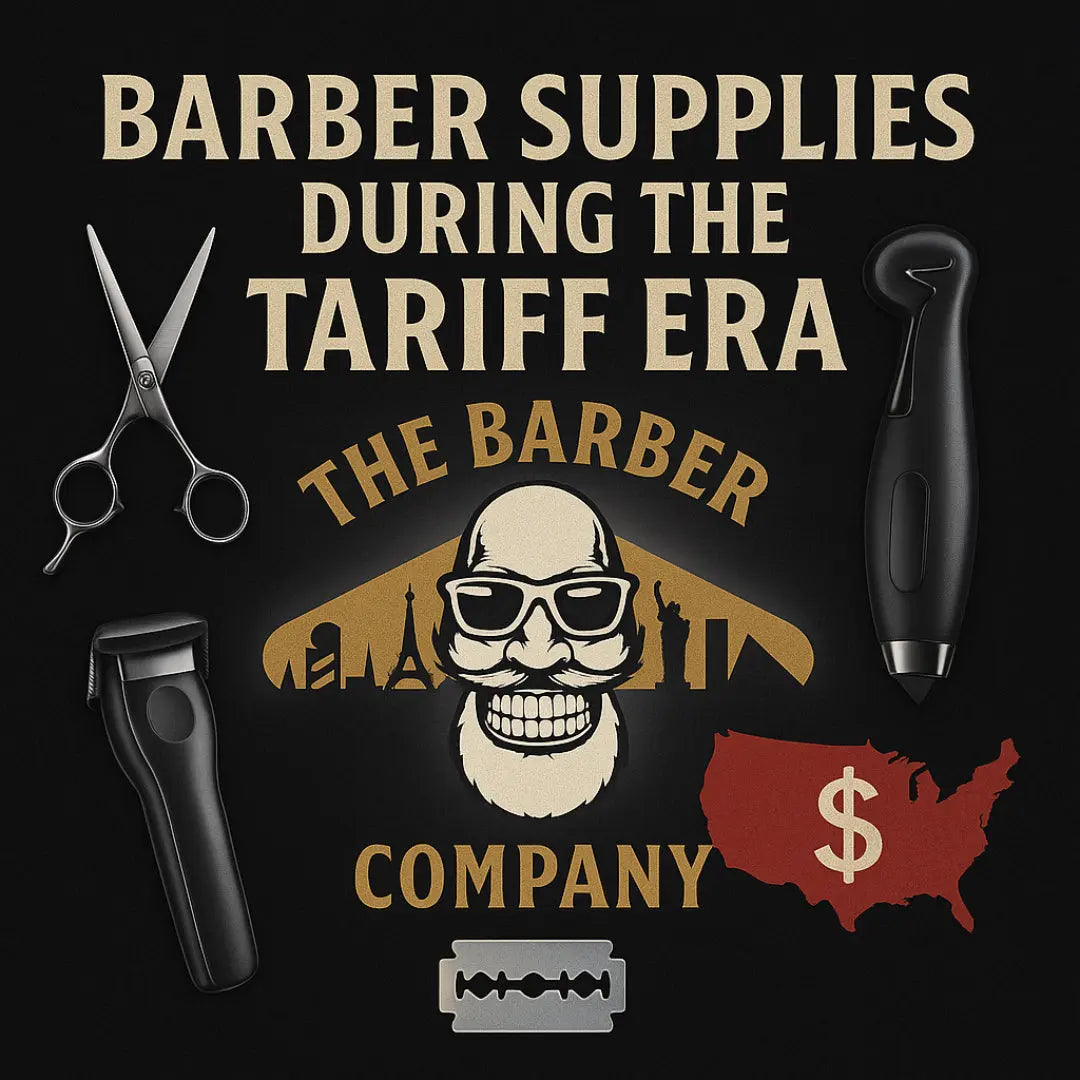The importance of barber sanitation cannot be overstated when you’re getting a haircut or giving one. A sanitary environment doesn't just prevent health risks—it elevates the entire grooming ritual into an indulgent treat for both body and mind. But how can you tell if a barbershop environment is clean? We’ll go over important elements to look at when it comes to barber sanitation.
How Barber Sanitation Affects Your Business
Barber sanitation is a crucial aspect of any barbershop business, as it directly impacts both the customer experience and the overall reputation of the establishment.
Cleanliness and hygiene play a significant role in attracting and retaining customers, as clients expect a safe and sanitary environment when they visit a barbershop.

Proper sanitation practices like using barbicide not only ensure the health and well-being of customers but also create a positive impression that can lead to repeat business and word-of-mouth recommendations.
Regularly cleaning and sterilizing tools such as clippers, scissors, combs, and razors is essential to prevent the spread of infections or skin irritation among customers.
By prioritizing sanitation practices, barbershops can demonstrate their commitment to professionalism!
Cleaning Your Barber Blades, Clippers & Trimmers
Using a clipper spray disinfectant can effectively remove dirt, hair, and bacteria buildup, preventing the spread of infections between clients.
In addition to regular cleaning, it's also important to oil your clippers and trimmers to keep them running smoothly.
Neglecting this step can lead to dull blades and decreased cutting performance. By incorporating these simple practices, you not only prolong the life of your tools but also prioritize the health and safety of both yourself and your clients.

Remember, cleanliness is not just a matter of appearance but a fundamental aspect of professionalism in the barbering industry. Keeping your tools clean and well-maintained shows that you value the trust that clients place in you!
How Often To Disinfect Your Barber Tools
Experts recommend disinfecting tools after each use or haircut, especially those that come into direct contact with skin and hair, such as razors and scissors.
It's also important to clean surfaces such as countertops and chairs regularly to ensure a hygienic environment.
In addition to routine disinfection, barbers should also consider deep cleaning and sanitizing their tools on a weekly basis.
This involves soaking tools in a sterilizing solution or using an ultraviolet light sanitizer for extra protection against germs.

By incorporating these practices into their daily routines, barbers can demonstrate their commitment to the health and safety of their clients while maintaining a professional standard.
What Happens If You Don't Clean Your Barber Tools?
Failing to clean your barber equipment can lead to the buildup of bacteria, fungi, and viruses that can easily transfer from one client to another.
This poses a serious risk of infections, skin irritations, and other health complications that could potentially harm your clients.
Moreover, neglecting to clean and sanitize your barber tools can also result in clipper damage.
Hair clippings and product residues can accumulate inside the blades, causing them to dull over time and impacting their performance. This not only affects the quality of your cuts but also shortens the lifespan of your tools. Not to mention, it can lead to unexpected hair clipper repairs!

By prioritizing proper cleaning practices for your barber tools, you can ensure both your clients' safety and your equipment's longevity!
Things To Keep In Mind About Barber Sanitation
When it comes to barber sanitation, remember the importance of cleaning and disinfecting tools regularly. This not only ensures the safety of clients but also maintains a professional and hygienic environment.
Additionally, proper disposal of single-use items such as razor blades and towels is crucial in preventing the spread of infections.
Another key aspect to keep in mind about barber sanitation is the proper maintenance of surfaces and workstations.
Regularly wiping down countertops, chairs, and mirrors with disinfectant helps in preventing the buildup of bacteria and viruses.
Moreover, implementing good hygiene practices, such as hand washing before and after each client interaction, further minimizes the risk of cross-contamination.







